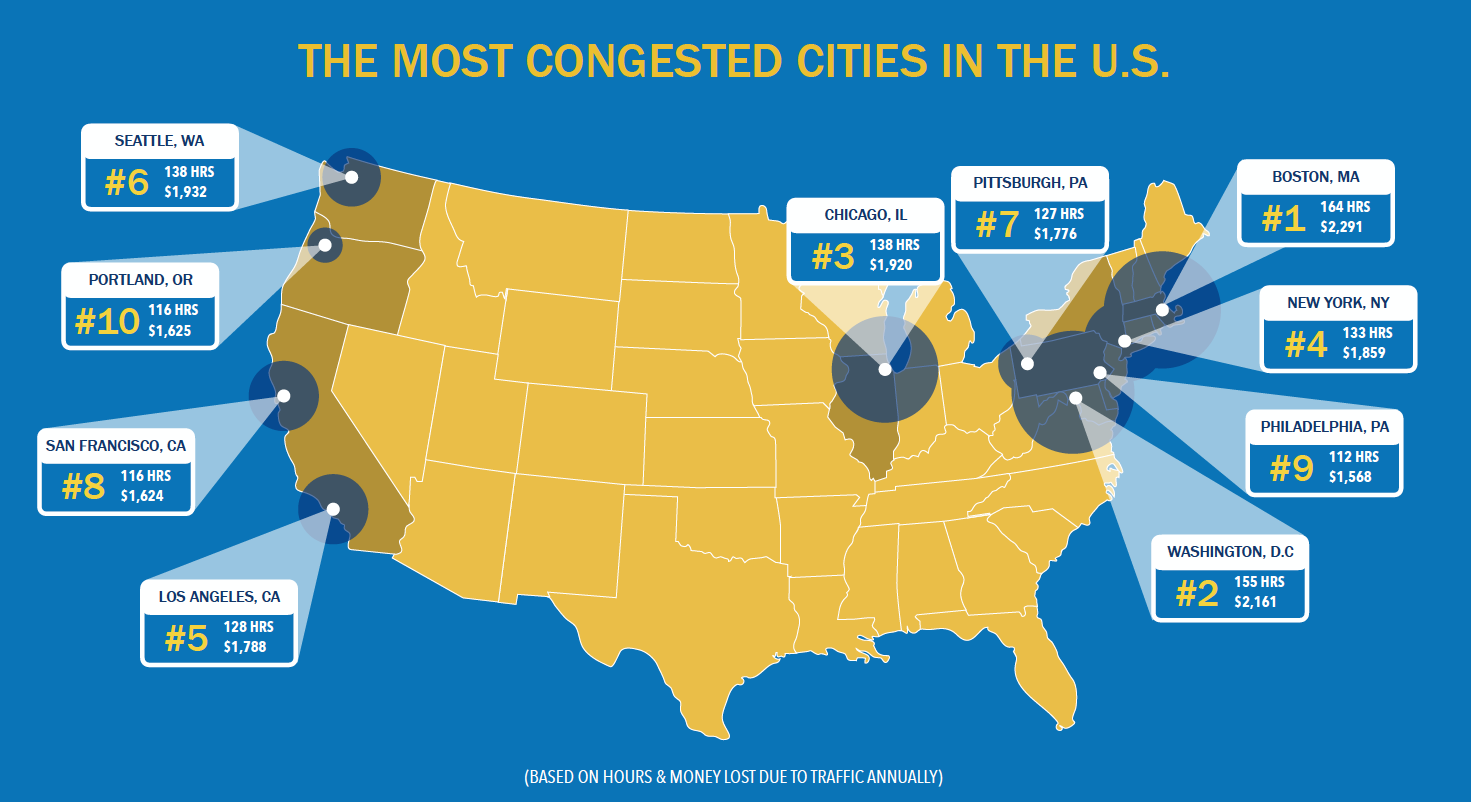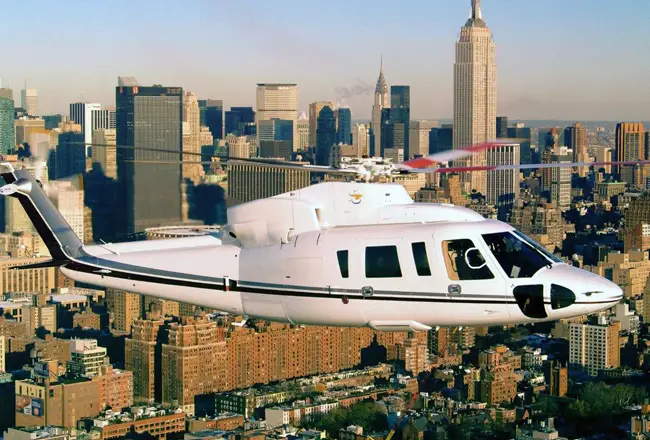
If you think sleepless nights are costly, this next bit of information might give you more insomnia.
U.S. commuters lost an average of 97 hours a year due to traffic congestion, costing them nearly $87 billion in 2018, an average of $1,348 per driver, and passenger for that matter. The 2018 Global Traffic Scorecard, a report by research firm INRIX, released this morning identified and ranked congestion and mobility trends in more than 200 cities across 38 countries.
Boston drivers lost up to $2,291 per year or 164 hours due to congestion, followed by Washington, D.C. ($2,161 or 155 hours), Seattle ($1,932 or 138 hours), Chicago ($1,920 or 138 hours) and New York City ($1,859 or 133 hours). In terms of lost productivity, it”™s in the billions. The cost of traffic congestion for New York City is $9.5 billion. Los Angeles followed at $9.3 billion.
For the fourth year in a row, the Cross Bronx Expressway (Interstate 95) tops INRIX”™s list of worst corridors, with drivers wasting a total of 114 hours per year at peak hours in congestion.
Boston had the ignominious honor of being ranked in the top 10 most congested cities in the world. In the global listing, Moscow was first and Boston was eighth followed by St. Petersburg, Russia and Rome.
Trevor Reed, transportation analyst at INRIX, said, “Congestion costs Americans billions of dollars each year. It will continue to have serious consequences for national and local economies, businesses and citizens in the years to come.”
And how do you fix it? Reed said, “If we’re to avoid traffic congestion becoming a further drain on our economy, we must invest in intelligent transportation systems to tackle our mobility challenges.”
INRIX arrived at its figures by analyzing 500 terabytes of data from 300 million different sources covering more than 5 million miles of road. It also calculated time lost in congestion by employing peak, off-peak and free flow data.
By the way, if you want to avoid heavy congestion on your ride to work you”™re going to have to head west. Wichita, Kansas, had the lowest cost of congestion among the U.S. cities studied at $304 per driver.






















